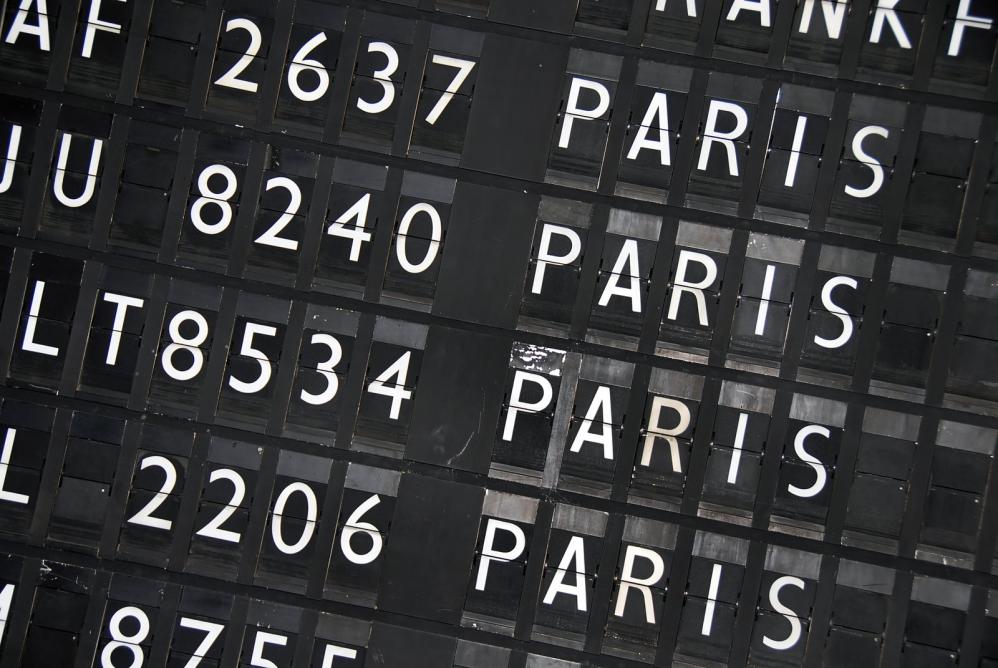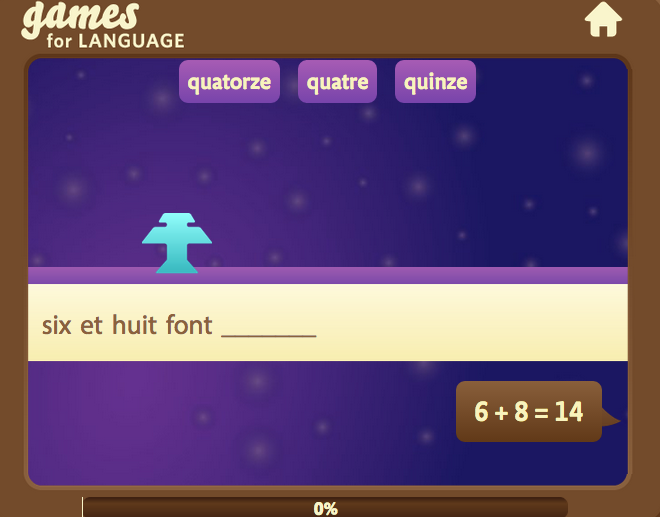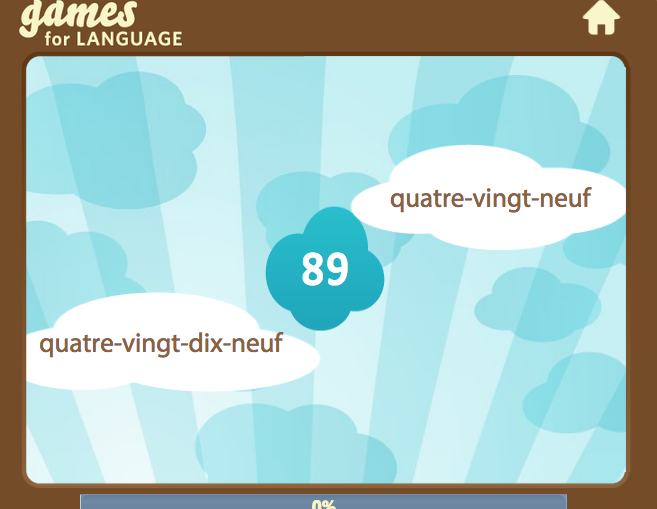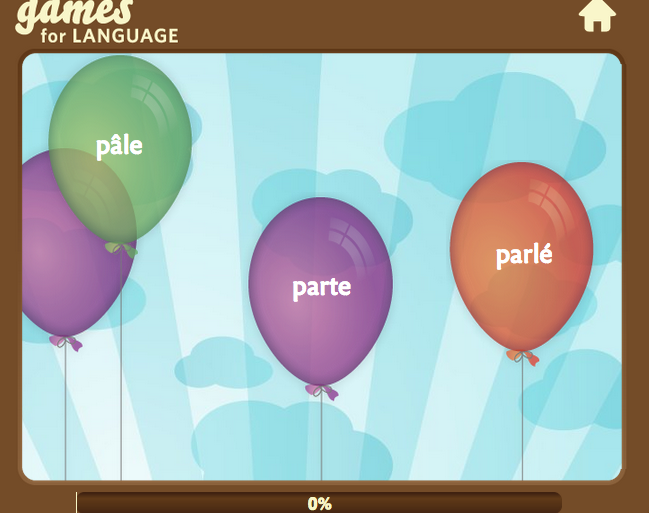Un–deux–trois: Some French Numbers Are Tricky Beyond 69...
 From my school days, I remember French numbers with horror: the many nasal sounds and especially the numbers from 70 to 99.
From my school days, I remember French numbers with horror: the many nasal sounds and especially the numbers from 70 to 99.
But while traveling in French-speaking countries, I also realized how important it is to both understand and pronounce the numbers, such as when flight numbers are announced in French (see picture, above) and you, maybe, missed the English.
And, adding French numbers to your bag of basic words and expressions, such as bonjour, au revoir, s'il vous plaît, merci, etc., will make shopping in small stores or local markets both more pleasant and effective.
If we are traveling to a country whose language we don't speak, we now make it a habit to study at least its numbering system and memorize the basic numbers of 1 to 100.
We clearly benefited from knowing the numbers when we arrived for a stay in Italy (See our previous post) and then again on trips to China and Japan. Of all the words we had learned to prepare ourselves - the numbers proved to be the most useful.
Most numbers that you see and write are in the form of digits. You rarely need to spell them. But you do need to understand them when they're spoken. So to learn them, it helps to see them written out.
French Numbers 1 to 20
 French numbers from 1-10 somewhat resemble those in English, and are not hard to learn. Most importantly, though, you need to practice the pronunciation.
French numbers from 1-10 somewhat resemble those in English, and are not hard to learn. Most importantly, though, you need to practice the pronunciation.
Writing them out may help once you can easily pronounce them: "un" (one), "deux" (two), "trois" (three), "quatre" (four), "cinq" (five), "six" (six), "sept" (seven), "huit" (eight), "neuf" (nine), "dix" (ten). Not to forget that French "zero" is "zéro".
For the numbers 11 to 16, you have a shortened form of the numbers 1 to 6, plus the ending "-ze": "onze" (eleven), "douze" (twelve), "treize" (thirteen), "quatorze" (fourteen), "quinze" (fifteen), "seize" (sixteen).
Notice the exception: "quinze" (15), where "cinq" (5) becomes "quin-."
For the numbers 17, 18, and 19, the pattern is turned around. You begin with "dix-" and add the numbers 7, 8, and 9.
- Thus for 17, you say: "dix-sept"
- For 18, you say: "dix-huit"
- For 19, you say: "dix-neuf"
The French number 20 is "vingt."
Once you've memorized the numbers 1 to 20, you've got a useful basis for the numbers that follow. And practicing is easy, just Play French Numbers 1-20
Counting from 30 to 69
The round numbers 30 to 60 are pretty regular.
The number 30 is "trente," but 40, 50, and 60 have the ending "-ante": "quarante" (40), "cinquante (50), "soixante" (60).
Note:
It's "trente-et-un" for 31, but "trente-deux" (32), "trente-trois" (33), up to 39.
It's "quarante-et-un" for 41, but "quarante-deux" (42), "quarante-trois" (43), up to 49.
It's "cinquante-et-un" for 51, but "cinquante-deux" (52), "cinquante-trois" (53), up to 59.
It's "soixante-et-un" for 61, but "soixante-deux" (62), "soixante-trois" (63), up to 69.
Counting from 70 to 90
Starting with 70, though, you have to watch out. The French number 70, is "sixty-ten": "soixante-dix". This pattern continues up to 80.
Thus for 71, you say "soixante-onze" (sixty-eleven), "soixante-douze", (sixty-twelve), etc, up to eighty.
 The French number 80 is 4x20: “quatre-vingts” (four twenties). This provides the basis for the numbers 81 to 99 (except that you write “quatre-vingt-xx” without the “-s” when another number follows).
The French number 80 is 4x20: “quatre-vingts” (four twenties). This provides the basis for the numbers 81 to 99 (except that you write “quatre-vingt-xx” without the “-s” when another number follows).
Once you've understood that the numbers from 81 to 99 all start with “quatre-vingt- xx”, all you need to do is add the appropriate number from “un” (one) to “dix-neuf” (nineteen). It's a fun way to give your math mind a little workout!
So, from “quatre-vingt-un” (81), over “quatre-vingt-dix” (90), to “quatre-vingt-dix-neuf” (99), the numbers are all consistent.
Mastering numbers well enough so that you can easily pay at a market, understand an address, or take down a telephone number can indeed be a challenge. Click on the screenshot above or on Play French numbers 21 and beyond to practice.
Telephone Numbers
In France, telephone numbers are normally given as a series of two-digit numbers.
For the number 05 32 77 42 98, you'll hear: zéro cinq, trente-deux, soixante-dix-sept, quarante-deux, quatre-vingt-dix-huit.
To avoid confusion you may need to ask for each digit separately. Or at least, read the numbers back to the other person to make sure they are right.
French Numbers from 100 to 10,000 (10.000 in french)
For the numbers from 101 to 1999, simply add the hundreds to the numbers you already know.
(Seeing these numbers written out is pretty rare. But, according to the 1990 spelling reform, the numbers are all connected with a hyphen, as we've written them here. You may also see them without a hyphen.
Thus, 101 is “cent-un,” 125 is “cent-vingt-cinq,” and 175 is “cent-soixante-quinze.
The number 200 is “deux-cents,” with a silent “-s” for plural agreement. In writing, the “-s” is dropped when another number follows. So, 201, is “deux-cent-un,” 238 is “deux-cent-trente-huit,” and 296 is “deux-cent-quatre-vingt-seize.”
French Historical Dates
You rarely see historical dates written out, but there are conventions on how to say them.
In French, you start with “mille” (thousand) to say a specific year between 1101 and 1999. So,1323 (thirteen hundred twenty-three) would be “mille-trois-cent-vingt-trois” in French, and 1889 (eighteen hundred eighty-nine) would be “mille-huit-cent-quatre-vingt-neuf.”
You do the same for the current century. (Note that “mille” is invariable.) The year 2000 is “deux-mille”; 2015 is “deux-mille-quinze”; 2021 is "deux-mille-vingt-et-un".
With this Quick French Game, you can practice some of the French numbers between 21 and 100 and beyond.
Millions, Billions, Trillions, etc.
A point of frequent confusion for English speakers may be the high numbers that are often quoted in news reports about global finances. French and English agree on 1,000,000 - “un million” (one million).
But, for the US number “billion,” (thousand million), the French say “milliard,” and for the US number “trillion,” the French say “billion.” You can see the problem.
Swiss French (and Belgian French)
In Swiss French (“suisse romand”), a different and simpler form is used for the numbers from 70 to 99. The number 70 is “septante,” 80 is “huitante” or “octante” (depending on the canton), and 90 is “nonante.”
It goes without saying, that it's a breeze to combine these round numbers with the single digits: for example, 74 is “septante-quatre,” 86 is “huitante-six,” and 98 is “nonante-huit.”
Belgians will also count with “septante” and “nonante,” but still use the French “quatre-vingts” and the combinations up to “quatre-vingt-neuf.”
Pronunciation Practice
Practicing the French numbers gives you a great opportunity to work on your pronunciation. As in any language, getting the mouth mechanics right is also important in French. You can practice the French "r" by clicking on this Quick Game or on the screenshot. French numbers have a nasal ending with silent letters, depending on whether another vowel follows.
You can practice the French "r" by clicking on this Quick Game or on the screenshot. French numbers have a nasal ending with silent letters, depending on whether another vowel follows.
In “vingt,” the “g” is silent and the “t” is spoken; in “cent,” the “t” is silent; but in “trente,” the “t” is spoken because of the silent “-e” at the end. Click on Vowels and accents, if you want to practice those.
During the day, when you're commuting to work, noting how many email messages are in your inbox, reading the newspaper, doing exercises, etc., you'll always see or count numbers. Pronounce them silently, or out loud if you can, in French. And you'll be surprised how fast you'll know them!
Bio: Peter Rettig is the co-founder of Gamesforlanguage.com. You can follow GamesforLanguage on Facebook, Twitter and Instagram, and leave any comments with contact.
